Introduction
Pigeons, often recognized for their distinctive cooing and widespread urban presence, are the subject of various inquiries regarding their susceptibility to diseases. One question that frequently arises is whether pigeons can contract rabies, a viral infection notorious for its impact on mammals, including humans. Rabies is typically associated with warm-blooded animals, especially mammals, but the specifics of its transmission and prevalence in certain avian species like pigeons remain a topic of interest and concern. This inquiry delves into the unique biology of pigeons, the nature of rabies, and the scientific understanding of the interactions between these two elements.
Understanding the potential for pigeons to contract rabies requires a closer examination of the virus itself and the physiological characteristics of these avian creatures. Rabies is primarily a mammalian disease caused by the rabies virus, a member of the Lyssavirus genus. The virus is typically transmitted through the saliva of an infected animal, often via bites or scratches. However, the ability of pigeons to contract and transmit rabies raises questions about the nature of viral infections in birds and their possible role in the epidemiology of rabies. Exploring the current state of scientific knowledge on this matter is essential for dispelling myths, addressing public concerns, and implementing appropriate public health measures.
As urban environments continue to host significant pigeon fly populations, the question of whether pigeons can serve as reservoirs for rabies becomes increasingly relevant. This inquiry is not only pertinent for understanding the health risks associated with these birds but also for refining public health strategies and fostering coexistence between humans and urban wildlife. By shedding light on the interplay between pigeons and rabies, we can contribute to a more comprehensive understanding of zoonotic diseases and pave the way for informed policies that safeguard both human and avian health.

What happens if a pigeon bite you?
Do pigeons bite humans? Sure, but since they don’t have hookbills, their bites don’t hurt the way a parrot bite will. Pigeons and doves will usually try to grab and shake your hand in protest, but they don’t cause injury. And pigeons ARE NOT DIRTY, nor do they carry disease that can be transmitted to humans.
If a pigeon bites you, the immediate concern is typically related to the potential for infection rather than transmission of diseases like rabies. Pigeon bites may lead to minor injuries, but there are some considerations to keep in mind:
Bacterial Infection: Pigeons, like many birds, may carry bacteria in their beaks and mouths. If a bite breaks the skin, there is a risk of bacterial infection. Common bacteria associated with bird bites include Pasteurella multocida. It’s important to clean the wound thoroughly with soap and water and apply an antiseptic to minimize the risk of infection.
Potential for Zoonotic Diseases: While pigeons are not known carriers of rabies, there are other zoonotic diseases (diseases that can be transmitted from animals to humans) that may be of concern. However, the risk of contracting a serious disease from a pigeon bite is generally low.
Allergic Reactions: Some individuals may experience an allergic reaction to bird bites. If you notice signs of an allergic reaction, such as swelling, difficulty breathing, or a rash, seek medical attention promptly.
If you are bitten by a pigeon or any other bird, it’s advisable to clean the wound thoroughly and monitor it for signs of infection. Seeking medical attention is recommended, especially if the wound is deep, if there are signs of infection, or if you have concerns about potential diseases. Additionally, if you experience any unusual symptoms after a bite, consult with a healthcare professional for appropriate guidance.
Do pigeons carry diseases?
Diseases associated with pigeon droppings include Cryptococcosis, Histoplasmosis and Psittacosis. You can become infected with these diseases by breathing in the dust that is created when cleaning droppings. The risk of pigeon-related diseases is rare.
Yes, pigeons can carry diseases that may pose risks to human health. While pigeons are not known to be carriers of rabies, as mentioned earlier, they can harbor other diseases and parasites. The main concerns associated with pigeons and diseases include:
Histoplasmosis: Pigeon droppings can contain the fungus Histoplasma capsulatum, which can cause histoplasmosis in humans. The disease is contracted by inhaling airborne spores released from the dried and disturbed droppings. While most cases of histoplasmosis are mild and resolve on their own, severe cases can occur, especially in individuals with compromised immune systems.
Cryptococcosis: Another fungal disease associated with pigeon droppings is cryptococcosis. The fungus Cryptococcus neoformans can be found in pigeon droppings, and inhalation of spores can lead to respiratory infections in humans.
Psittacosis: While more commonly associated with parrots, pigeons can also carry Chlamydia psittaci, the bacterium that causes psittacosis. This respiratory disease in humans can range from mild flu-like symptoms to severe pneumonia.
Ectoparasites: Pigeons can carry ectoparasites like ticks, mites, and fleas. While the direct transmission of diseases from these parasites to humans is relatively rare, their presence can still be a concern, particularly for individuals with allergies or compromised immune systems.
To minimize the risk of disease transmission from pigeons:
Avoid direct contact: Refrain from handling pigeons or their nests, and avoid contact with their droppings.
Practice good hygiene: Wash hands thoroughly after being in areas where pigeons are present, especially before eating.
Maintain cleanliness: If pigeons are present in or around your living space, take measures to clean up droppings promptly and safely.
Will I get sick if I touch a pigeon?
Can you get sick from pigeons? Pigeons in general do carry a lot of disease but most are not transferable to humans. The one way humans can contract diseases from pigeons is by exposure to their droppings.
Touching a pigeon is generally not a direct cause for concern, and most people who come into casual contact with pigeons do not become ill. Pigeons themselves are not inherently dangerous, but there are some precautions to consider to minimize potential health risks:
Disease Transmission: While pigeons can carry diseases, the risk of direct disease transmission from casual contact is low. The primary concern comes from exposure to pigeon droppings, which may contain fungi or bacteria. Avoid touching droppings and be mindful of your surroundings.
Allergic Reactions: Some individuals may be allergic to bird dander or feathers. If you have known allergies, be cautious when handling pigeons or being in close proximity to them.
Good Hygiene Practices: After touching any animals, including pigeons, it’s advisable to wash your hands thoroughly with soap and water. This practice helps reduce the risk of bacterial or fungal contamination.
Avoid Contact with Sick or Injured Birds: If you come across a sick or injured pigeon, it’s best to avoid direct contact. Sick birds may carry a higher risk of disease, and attempting to handle them could result in injury to both the bird and yourself.
Respect Wildlife: Pigeons are wild birds, and it’s important to remember that they may feel threatened or stressed by human contact. Respecting their space helps minimize the chances of bites or scratches.
While the chances of getting sick from touching a pigeon are low, it’s essential to be aware of potential risks and take appropriate precautions. If you have concerns about specific health conditions or potential exposure to diseases, consulting with a healthcare professional is advisable. Additionally, if you notice any signs of illness or unusual behavior in a pigeon, it’s best to avoid direct contact and report it to local wildlife authorities.
What are the common diseases of pigeons?
Like many other types of animals, pigeons can harbor various kinds of worms in their intestinal tract. Roundworms, tapeworms, and hairworms grow and live in the digestive tract of pigeons and can cause diarrhea, weakness, increased susceptibility to other diseases, and performance issues in competitive pigeons.
Pigeons can be susceptible to various diseases, some of which may also pose risks to human health. Common diseases of pigeons include:
Paramyxovirus (PMV): This viral infection affects the respiratory, nervous, and digestive systems of pigeons. It is highly contagious and can cause severe illness in flocks. Pigeons with PMV may exhibit respiratory distress, neurological symptoms, and a drop in egg production.
Pigeon Pox: Pigeon pox is caused by a virus that affects the skin and mucous membranes of pigeons. Infected birds develop characteristic lesions on the skin, beak, and eyes. While pigeon pox is generally not fatal, it can lead to secondary bacterial infections.
Canker (Trichomoniasis): Canker is a protozoan infection caused by the parasite Trichomonas gallinae. It affects the upper digestive tract of pigeons and can result in yellowish lesions in the mouth and throat. Infected birds may show signs of weight loss, lethargy, and difficulty swallowing.
Salmonellosis: Pigeons can carry Salmonella bacteria, which can cause illness in both pigeons and humans. Salmonellosis can be transmitted through contact with contaminated feces, food, or water. In humans, it can lead to gastroenteritis with symptoms such as diarrhea, abdominal cramps, and fever.
Chlamydiosis (Psittacosis): While more commonly associated with parrots, pigeons can also carry Chlamydia psittaci, the bacterium that causes psittacosis. In humans, psittacosis can result in flu-like symptoms, pneumonia, and other respiratory issues.
Ectoparasites: Pigeons can host external parasites like mites, ticks, and fleas. These ectoparasites can cause irritation, discomfort, and potential transmission of diseases.
Why did my pigeon bite me?
A bird may bite out of fear, excitement, true aggression, or displaced aggression, and there are warning signs that every bird owner should be aware of.
Pigeons, like many other animals, may bite for various reasons. Understanding the potential motivations behind a pigeon bite can help you interpret its behavior and take appropriate actions. Here are some common reasons why a pigeon might bite:
Fear or Stress: Pigeons may bite if they feel threatened or stressed. If a pigeon perceives you as a potential threat or if it feels cornered, it might resort to biting as a defensive measure.
Protecting Territory or Nest: During breeding seasons, pigeons can become territorial, especially if they have established nests nearby. If you approach a nesting site or get too close to a pigeon’s perceived territory, it may bite to defend its space.
Hunger or Agitation: Pigeons may become agitated or even bite if they are hungry and expecting food. If a pigeon associates your presence with the delivery of food and you don’t provide any, it might express frustration through biting.
Illness or Discomfort: Sick or injured pigeons may bite as a response to pain or discomfort. If a pigeon is unwell, it may perceive any attempt to handle it as threatening, leading to defensive behavior.
Mistaken Identity: Pigeons may not fully understand human interactions, and a bite could occur if a pigeon mistakes a part of your body (such as a finger) for food or if it is trying to explore its surroundings.
If you’ve been bitten by a pigeon, it’s essential to clean the wound thoroughly with soap and water to reduce the risk of infection. Monitor the area for signs of infection, and seek medical attention if needed. To prevent pigeon bites, avoid actions that may stress or threaten the bird, and be cautious when handling or approaching pigeons, especially those in a nesting or territorial state. Remember that pigeons are wild animals, and even though they are accustomed to urban environments, they may react defensively in certain situations.
Is it OK if a bird bites you?
Infection from bird bites is a big concern. Birds carry many of the common bacteria we are exposed to in our environment such as E. coli, Salmonella, and Staphylococcus. But they also can transmit to humans (through bites and scratches) Lactobacillus, Pasteurella multocida, and Proteus.
While a bird bite is typically not a cause for major concern, it’s important to take appropriate steps to address the situation and minimize any potential risks. Most bird bites are relatively minor, but there are some considerations to keep in mind:
Cleaning the Wound: The first step is to clean the wound thoroughly with soap and warm water. This helps reduce the risk of infection, as bird beaks may carry bacteria.
Antiseptic Application: After cleaning the wound, applying an antiseptic ointment can further help prevent infection. Keep an eye on the wound for any signs of redness, swelling, or infection.
Seek Medical Attention: If the bite is deep, if there are signs of infection, or if you have concerns about diseases, it’s advisable to seek medical attention. In some cases, a healthcare professional may recommend a tetanus shot, especially if it’s been a while since your last vaccination.
Allergies: Some individuals may be allergic to bird saliva or other components, and a bite could trigger an allergic reaction. If you experience symptoms such as swelling, difficulty breathing, or a rash, seek medical help immediately.
Avoid Provoking the Bird: If a bird has bitten you, it’s essential to assess the situation and avoid provoking the bird further. Birds may bite as a defensive reaction, especially if they feel threatened or cornered.
Preventative Measures: To reduce the risk of bites, avoid handling wild birds whenever possible. If you have pet birds, be aware of their behavior and handle them with care to minimize stress and potential bites.
Do pigeons have viruses?
Avian Paramyxovirus type 1 in pigeons (PPMV1) is a viral infection that is present in most countries that can spread rapidly and cause high rates of pigeon illness and death.
Yes, pigeons can carry various viruses. While pigeons are not typically known for transmitting viruses to humans directly, there are certain diseases associated with pigeons that people should be aware of. Some of the viruses that may be carried by pigeons include:
Paramyxovirus (PMV): This virus affects pigeons and other birds, causing respiratory, nervous, and digestive symptoms. It is highly contagious among pigeons, and outbreaks can occur in flocks. However, human transmission is rare.
Pigeon Pox Virus: Pigeon pox is caused by a virus that affects the skin and mucous membranes of pigeons. While it primarily affects pigeons, there is a possibility of transmission to humans if there is direct contact with infected birds or contaminated surfaces.
If you come into contact with pigeons or are concerned about potential health risks, consider the following precautions:
Wash hands thoroughly: After handling pigeons or being in areas where they are present, wash your hands with soap and water.
Avoid contact with droppings: Pigeon droppings may harbor bacteria and fungi. Avoid direct contact with droppings and clean up any areas contaminated by droppings cautiously.
Seek medical attention if needed: If you have concerns about exposure to viruses or if you experience symptoms after contact with pigeons, consult with a healthcare professional.
Overall, while pigeons can carry viruses, the risk of transmission to humans is relatively low with proper hygiene practices and precautions.
What is the new virus in pigeons?
Pigeons in the United Kingdom have become a target of a terrible disease called the Pigeon Paramyxovirus (PPMV) or Newcastle’s Disease. It results in neurological symptoms, including trembling wings and a violently twisted neck. The affected pigeons become reluctant to move and can’t fly. They also have green feces.
As of my last knowledge update in September 2021, there was no widely recognized or reported “new virus” in pigeons that had garnered significant attention. Viruses affecting birds, including pigeons, are continually studied, and new discoveries may occur over time. However, I do not have information on events or discoveries that may have taken place after September 2021.
To stay updated on the latest developments regarding viruses in pigeons or any other species, I recommend checking reputable sources such as scientific journals, veterinary publications, and official health organizations. These sources will provide accurate and up-to-date information on any emerging viruses, outbreaks, or research findings related to pigeons or other avian species.
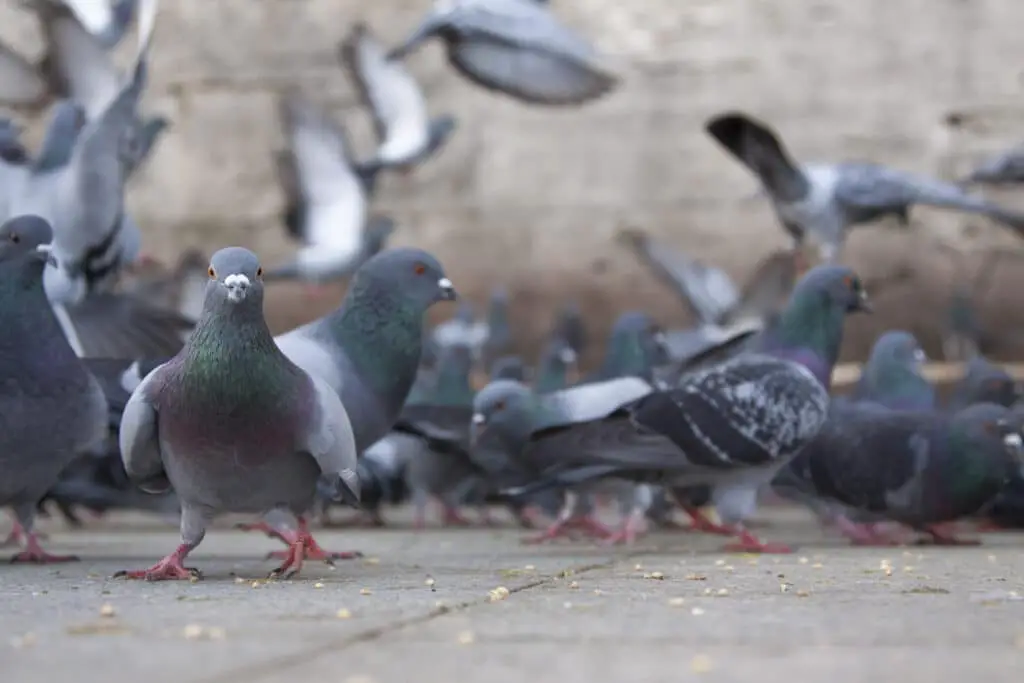
Conclusion
The exploration of whether pigeons can contract rabies reveals a complex interplay between the unique biology of these birds and the characteristics of the rabies virus. While it is well-established that rabies primarily affects mammals, the susceptibility of avian species, particularly pigeons, continues to be a subject of scientific investigation. The absence of conclusive evidence regarding pigeons contracting and transmitting rabies underscores the need for further research in this area. As urban environments witness a cohabitation between humans and pigeons, understanding the potential health risks associated with these birds becomes crucial for implementing effective public health measures and dispelling unwarranted fears.
The nuanced nature of the relationship between pigeons and rabies also prompts reflection on broader issues of zoonotic diseases and urban wildlife management. As cities expand and avian populations thrive in urban environments, the implications of diseases like rabies extend beyond traditional vectors. This necessitates a holistic approach to public health that considers the dynamics of wildlife in urban spaces. Future research should not only focus on the potential transmission of rabies by pigeons but also explore broader ecological aspects, enabling a comprehensive understanding of disease dynamics and facilitating the development of evidence-based policies.
In light of the current state of knowledge, it is imperative for public health authorities, researchers, and communities to engage in a collaborative effort to monitor and manage potential health risks associated with urban wildlife. By fostering a better understanding of the interplay between pigeons diseases like rabies, we can strike a balance between coexistence with wildlife and safeguarding public health. This journey of scientific inquiry not only enhances our understanding of avian health but also contributes to the broader discourse on the intricate relationships between humans and the diverse ecosystems we inhabit.

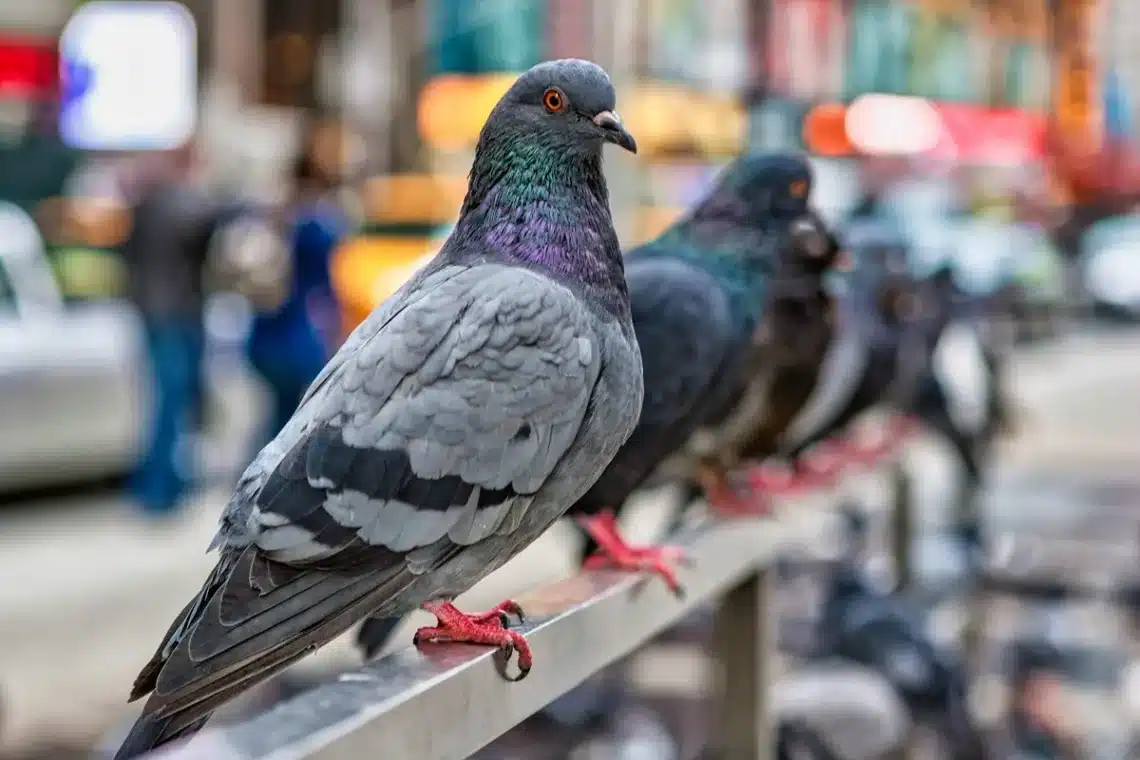
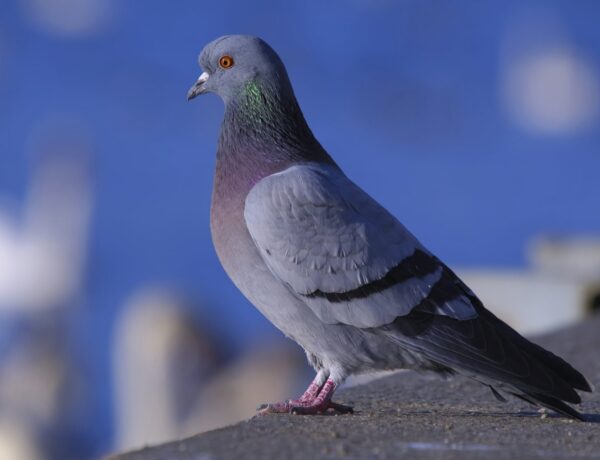
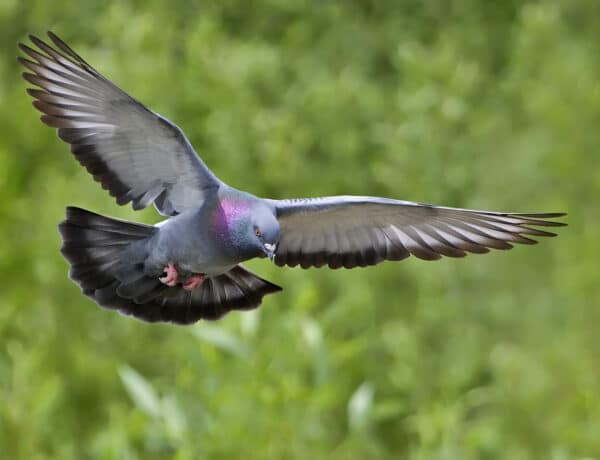
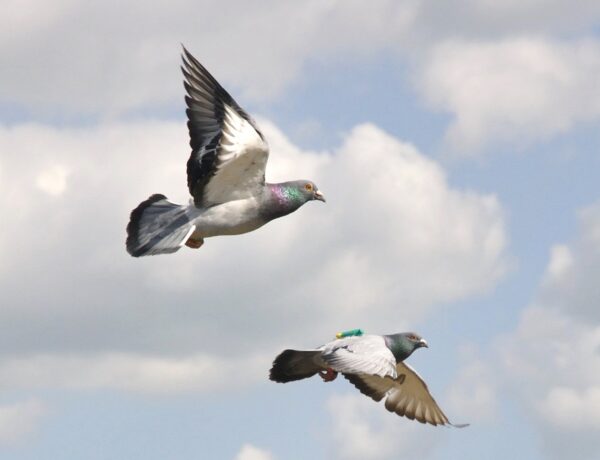
No Comments